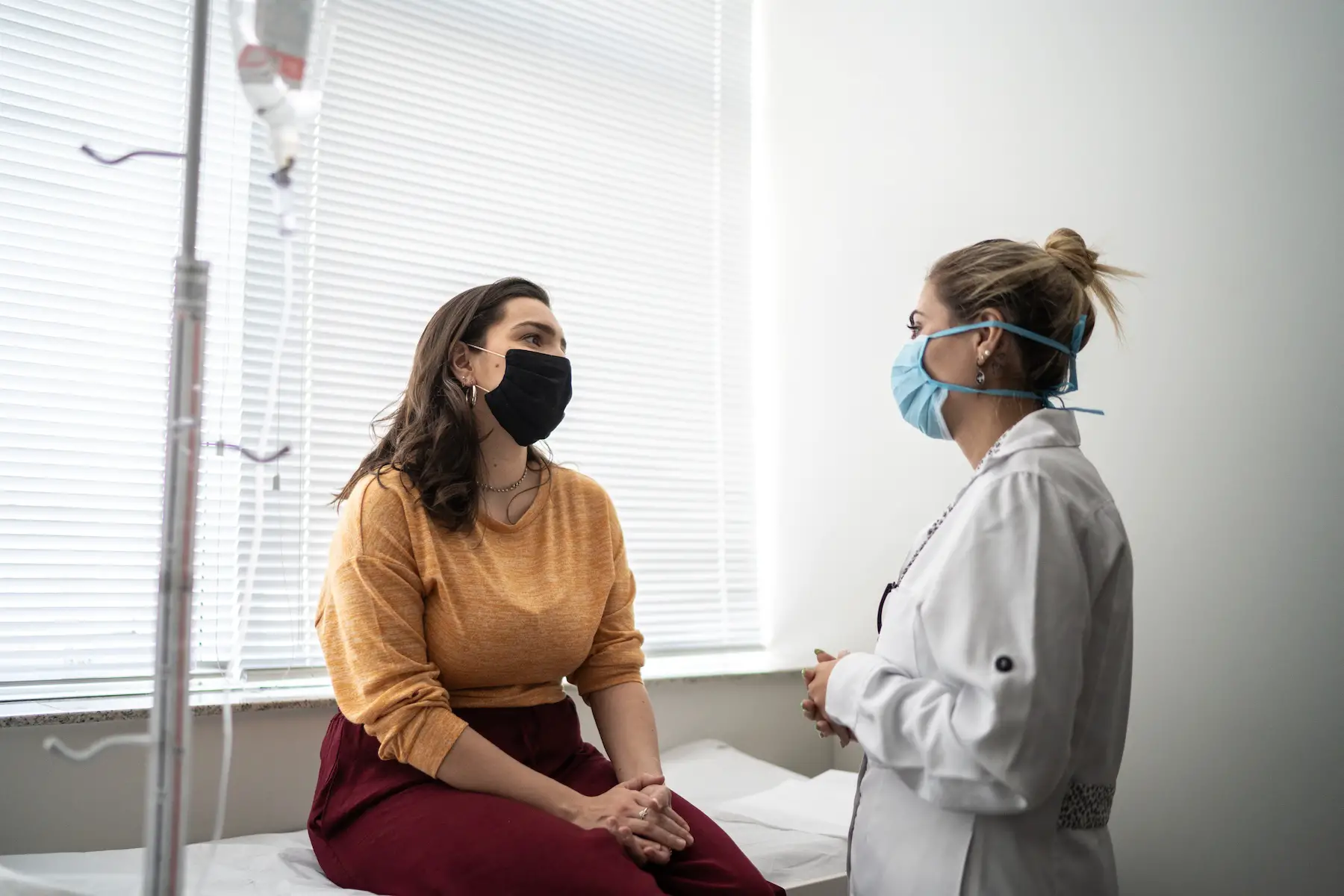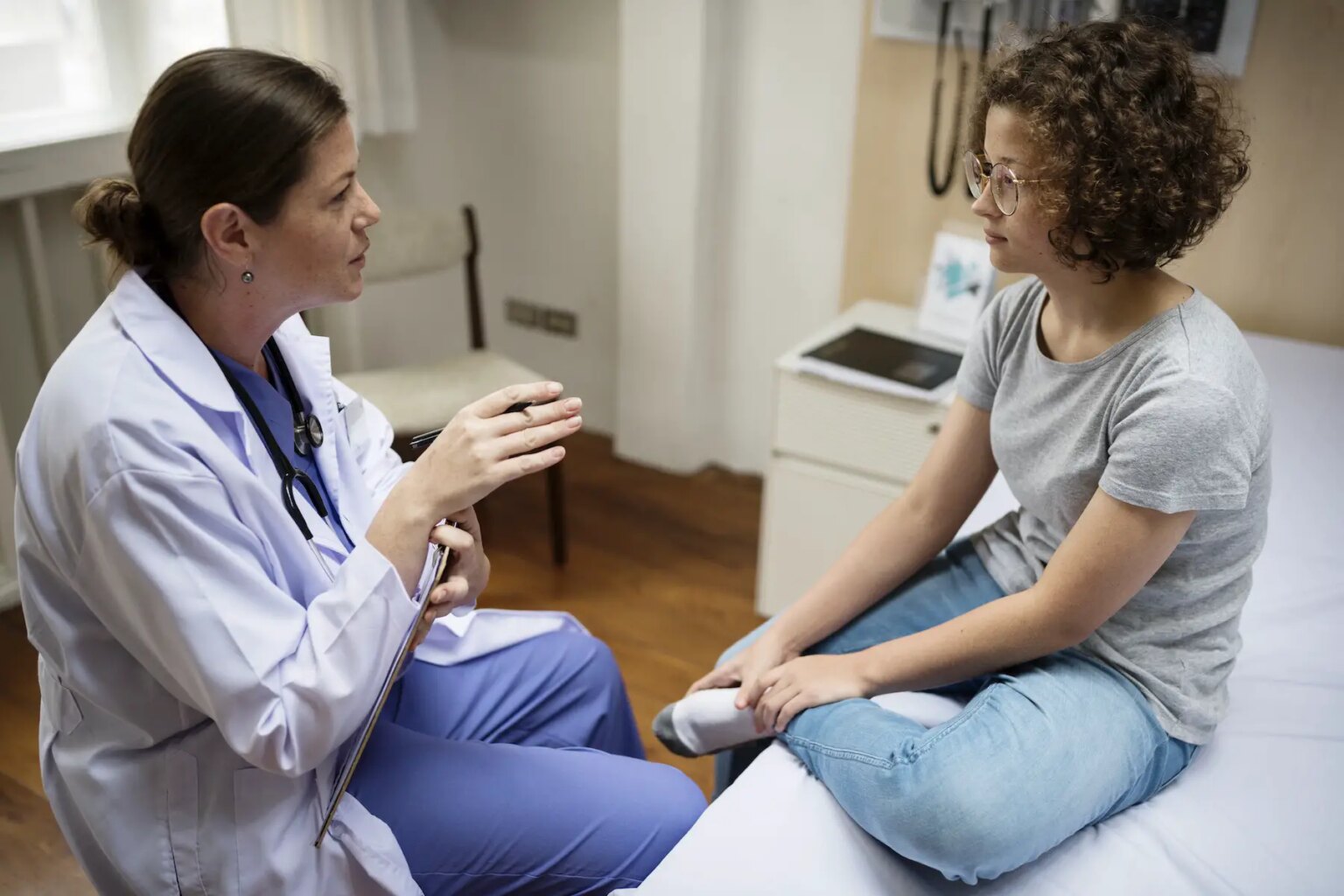Taking care of your health is always a good idea, no matter where you live. However, internationals may need help navigating a new healthcare system when settling. The Italian Servizio Sanitario Nazionale (SSN) offers vital care in cancer screenings and maternity services but lacks mental healthcare professionals and ease of access to abortion.
Whether working, studying, or retiring in Italy, women of all ages deserve affordable, accessible healthcare that fits their personal needs.
Keep reading for more information on the following topics:
- Women’s healthcare in Italy
- Accessing women’s healthcare services in Italy
- Insurance for women’s healthcare in Italy
- Women’s clinics and gynecologists in Italy
- Fertility treatments in Italy
- Abortion in Italy
- Menopause in Italy
- Maternity health services in Italy
- Italian mental healthcare services for women
- Services dealing with abuse and domestic violence
- Useful resources
Cigna Global
Want access to the best private medical services in Italy? Speak to the healthcare professionals at Cigna Global today and find a policy that’s right for you. Take advantage of their global network of doctors, specialists, therapists and more with coverage tailor-made for you and your family. If you’re starting a new life in Italy, get peace of mind with Cigna Global.
Women’s healthcare in Italy
Italy’s comprehensive National Health Service (Servizio Sanitario Nazionale – SSN) guarantees free or low-cost healthcare for all citizens and residents. Health services are available to everyone in Italy regardless of socioeconomic status. According to the 2021 Country Health Profile by the European Commission, only 1.8% of residents report unmet medical needs. It’s no wonder Italy ranked as the second-healthiest country worldwide in 2019.

In fact, Italian women have one of the longest life expectancies in the world at 85 years, as of 2020. They live about five years longer than Italian men (80 years) and past the European Union (EU) average for women (83.2 years).
Still, Italian society remains male-dominated in many aspects, and harmful gender role stereotypes hinder women’s safety and equality. As Italy struggles to achieve gender parity among medical providers, its proportion of female doctors will be among the lowest in Europe at 44% in 2021.
Accessing women’s healthcare services in Italy
Women in Italy access medical services through the country’s public healthcare system, managed by the Ministry of Health (Ministero della Salute). Care is available to all Italian citizens and legal residents as long as they have an SSN health card (tessera sanitaria).
Those coming to Italy from the European Economic Area (EEA) can register with the SSN immediately. However, newcomers from other countries must wait until they have their Italian residence permit to begin the process.
To register, visit your local health authority (Azienda Sanitá Locale – ASL) with the following:
- Passport
- Residence permit, if you are from a non-EEA country
- Italian tax number (codice fiscale)
- Your address in Italy
- Employment details, whether you have a job or are self-employed
- Family status certificate (certificato di stato di famiglia) to register any dependents
Once you receive your health insurance card, or tessera sanitaria, in the mail, you can register with a primary physician or find a gynecologist.
Availability and cost of menstrual hygiene products
The menstrual hygiene market is constantly expanding, from pads and tampons to reusable cups and discs. Italy has even the most modern menstrual hygiene products for sale, and you can find them at the local pharmacy or supermarket. However, highly specialized products, like soft cups or period underwear, might be easier to find online.
In terms of typical costs, pads and tampons range from €5–8 per pack, while menstrual cups and discs may be €10–30 depending on the quality. Keep in mind that although feminine hygiene products are a necessity, consumers still need to pay a 5% VAT upon purchase.
Insurance for women’s healthcare in Italy
Even with Italy’s universal healthcare, many women choose to take out supplementary private insurance for a broader choice and to help with costs. Also, because healthcare quality varies by region, it might be wise to get additional private insurance if you live far from a major city like Rome (Roma) or Milan (Milano).

Finally, you may need private insurance if you have to wait for your residence permit before enrolling in public healthcare. The private healthcare system may also offer more choices to women who prefer an English-speaking doctor in Italy.
Here are some options for international insurance providers:
Women’s clinics and gynecologists in Italy
You do not need a primary doctor’s referral to see a gynecologist, which is different from other specialists. You can contact your local women’s healthcare center (consultorio familiare) to book an appointment. These centers are found throughout the country and are divided by region.
While the SSN covers gynecologist visits, you generally need to pay for prescriptions and medication. Fortunately, these are affordable, with birth control pills costing as low as €9 per month.
If you decide to go with a private gynecologist, you should be able to get a quicker appointment. Some private specialists also offer virtual consultations or home visits.
Cancer screenings
The Italian government has instituted three national cancer screening programs (tumori e screening) to promote early diagnosis in women. These screenings are based on the three most common types of cancer (cancro) for Italian women:
- Cervical cancer (cancro cervicale)
- Breast cancer (tumore al seno)
- Colorectal cancer (cancro colorettale)
Local health departments around the country’s 21 regions conduct cancer screenings and promote awareness through community outreach.
You can expect an invitation – via mail – for the following screening programs while you live in Italy and fall in these age brackets:
| Ages | Type of cancer | Screening method | Frequency |
| 25–64 | Cervical | Pap test | Every three years |
| 50–69 | Breast | Mammogram | Every two years |
| 50–69 | Colorectal | Fecal occult blood test | Every two years |
Contraception and preventing pregnancy
While the SSN offers women many different types of contraception to prevent pregnancy, it does not cover the costs. Generally, Italian women are less likely use modern contraceptives than Austrians and Spaniards.

Even so, hormonal birth control pills are affordable (€9–18 per month), and almost 40% of women aged 15–49 take them. You need a prescription for:
- Birth control pills
- Injections
- Intrauterine devices (IUDs)
However, you can purchase emergency contraception (contraccezione d’emergenza) over the counter for around €13–27.
STI testing and treatment
Sexually transmitted infections (STI/STDs) are a major global health concern, with over 1 million cases contracted worldwide every day. Untreated STIs can result in sexual dysfunction, infertility, certain types of cancers, and even death.
In addition to using condoms, one of the best strategies to prevent the spread of STIs is through early diagnosis and treatment. Getting tested is quick and easy, and most STIs are curable with antibiotics.
If you think you could have contracted an STI, it’s important to reach out to your doctor as soon as possible or search for a clinic nearby to get tested. Most of Italy’s STI testing sites are free and operate anonymously, meaning you don’t have to give your name.
Fertility treatments in Italy
Italy’s healthcare system offers many fertility treatment options for women, known as medically assisted procreation (procreazione medicalmente assistita – PMA). These include:
- In vitro fertilization (IVF)
- Intrauterine insemination (IUI)
- Intracytoplasmic sperm injection (ICSI)
- Egg and sperm donation
- Oocyte cryopreservation
- Frozen embryo transfer (FET)
Fortunately, the public healthcare system covers much of the cost of fertility treatments, making them an affordable option for parents. For more information, you can browse state-certified PMA centers through the Ministry of Health website.
Abortion in Italy
Italian abortion laws
Abortion (aborto) has been legal in Italy since 1978. In the first 90 days of gestation, you can voluntarily terminate a pregnancy (interruzione volontaria di gravidanza) through the public healthcare system after a one-week waiting period. However, after three months, abortions are available only for congenital disabilities or danger to the mother.

Even though abortion is legal, medical providers have the right to morally object and refuse to do the procedure. Because Catholicism still influences the Italian culture, you may find fewer pro-choice doctors than in other countries.
In 2020, almost 65% of all Italian medical providers refused to perform abortions; this figure is as high as 90% in southern Italy. As a result, some women are forced to travel quite far to their nearest abortion provider.
Getting an abortion
Abortion is free in Italy and accessible to women through the public healthcare system. The non-profit organization, Laiga, offers a map of abortion providers who are pro-choice and willing to perform the procedure. You can contact these providers directly, although they may need some documentation from your primary doctor to proceed.
Both medical and surgical abortions are available in Italy. Your doctor can help you decide which is right in your case.
If you are less than nine weeks (63 days) along, you can opt for a medical abortion. Sometimes called “the abortion pill,” mifepristone and misoprostol allow you to end an early pregnancy at home with a doctor’s instruction.
Surgical abortions, on the other hand, are performed by a doctor under either general or local anesthesia. Whether or not you’ll get to go home right after the procedure depends on how far along you are and whether any complications arise.
Menopause in Italy
Menopause (menopausa), which typically starts anywhere from 45 to 55, can vary significantly in symptoms and severity. Common treatments to help manage menopause symptoms range from basic medication to hormone therapy. However, only about half of women in Italy experiencing menopause seek medical treatment.
If you in menopause and experience uncomfortable symptoms, you can reach out to your general practitioner or consultorio familiare for assistance. There are also specialized centers for menopause (centri per la Menopausa) across Italy that provide treatment and advice on living with menopausal symptoms.
Maternity health services in Italy
The Italian public healthcare system provides maternity care services to pregnant people, mostly free of charge.

Once you have a positive pregnancy test at your consultorio familiare, the doctor will give you an official pregnancy certificate (certificato di gravidanza) and send a copy to your employer. Discuss it further with your doctor if you are not yet ready to inform your work. This certificate grants you access to the financial and employment support you are entitled to during pregnancy.
Assistance is available if you don’t speak Italian or have other concerns about cultural differences during your pregnancy. Bellies Abroad is a non-profit organization in Italy that helps expectant parents find multilingual support.
Nurses, midwives, and pharmacists often assist nursing mothers with breastfeeding (allattamento al seno) and lactation questions. New mothers in Italy are guaranteed breaks from work to breastfeed in accordance with the law, as are fathers who may feed the baby instead.
Italian mental healthcare services for women
Italy only spends 3% of its healthcare budget on mental health services. As a result, there is a shortage of mental health professionals in Italy, with the Organization for Economic Cooperation and Development (OECD) reporting only 0.04 psychologists per 1,000 people in 2021.
Although the SSN fully covers outpatient services, like therapy and counseling, mental healthcare remains inaccessible to many Italians. According to a 2021 survey, only 16.9 in 1000 people reported using mental health services in Italy, compared to 31.5 on average for OECD countries.
If you need mental healthcare support, discuss it with your primary care provider, who can refer you to options in your area. You may encounter long waiting times, especially if you need an English-speaking provider, but there are other options.

The Italian government has introduced prevention campaigns and crisis lines to help those struggling with long waiting lists for psychological help. If you’re looking for a psychiatrist to prescribe medication, you may want to try going private instead.
An estimated 3 million people in Italy suffer from an eating disorder, such as anorexia or bulimia. While eating disorders can affect anyone regardless of gender or age, they are most common in women ages 15–25. You can find state-funded centers dedicated to treating eating disorders through the Ministry of Health website.
Services dealing with abuse and domestic violence
Violence against people who identify as women continues at worrying levels across Italy, even increasing in recent years. In 2021 alone, the government received reports that 93 women had been murdered, 4,000 were sexually assaulted, and 13,990 experienced stalking.
The Italian government funds hundreds of shelters nationwide for women fleeing domestic violence. These shelters welcomed more than 20,000 women in 2021; 26% were internationals.

Telefono Rosa (06 375 182 82) is one of the oldest support lines for women and children in Italy; it provides help to those seeking safety from violent situations.
Depending on your situation you can also contact the following helplines:
- Numero verde (national anti-violence and anti-stalking) – 1522
- Numero verde contro la tratta (anti-trafficking) – 800 290 290
Useful resources
- Consultori familiari – list of women’s health centers by region
- Doctors in Italy – find English-speaking private gynecologists in Italy
- World Health Organization – the state of sexual and reproductive health in Italy
- Telefono Rosa – support helpline for women and minors
- Laiga – a map of known abortion providers across Italy





